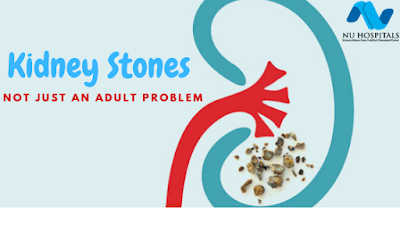It’s not wrong of you to typically think to relate kidney stones to older people. But the reality is that while they are common in adults, there has been a significant increase in kidney stones occurring in children over the last 10 years.
So you’re probably wondering why there are so many children with kidney stones. Even if there is no specific answer, but we can predict that it’s related to the following risk factors:
- Not drinking enough water.
- Consuming excessive salt.
- Lack of exercise.
The symptoms can vary. Some really young children, even premature babies have really small kidney stones and are entirely unaware of their existence. Younger kids may face problems to describe the pain and may just complain of a belly ache. Adolescents and teens may complain of intense back pain with nausea and vomiting. Sometimes there’s the presence of blood in the urine, but it’s always suggested to consult a doctor in order to detect the symptoms.
So as parents, how can you help prevent kidney stones?
There are three measures parents can take to prevent kidney stones.
- Make sure the children are drinking enough water.
- limiting the amount of sodium, maintaining an active lifestyle.
- Water intake is a little more specific to your child’s age.







